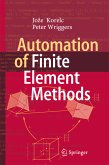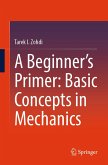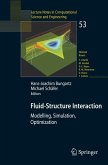. Weighted residual methods and Galerkin approximations,
. A model problem for one-dimensional linear elastostatics,
. Weak formulations in one dimension,
. Minimum principles in one dimension,
. Error estimation in one dimension,
. Construction of Finite Element basis functions in one dimension,
. Gaussian Quadrature,
. Iterative solvers and element by element data structures,
. A model problem for three-dimensional linear elastostatics,
. Weak formulations in three dimensions,
. Basic rules for element construction in three-dimensions,
. Assembly of the system and solution schemes,
. An introduction to time-dependent problems and
. An introduction to rapid computation based on domain decomposition
and basic parallel processing.
The approach is to introduce the basic concepts first in one-dimension, then move on to three-dimensions. A relatively informal style is adopted. This primer is intended to be a "starting point", which can be later augmented by the large array of rigorous, detailed, books in the area of Finite Element analysis. In addition to overall improvements to the first edition, this second edition also adds several carefully selected in-class exam problems from exams given over the last 15 years at UC Berkeley, as well as a large number of take-home computer projects. These problems and projects are designed to be aligned to the theory provided in the main text of this primer.
Dieser Download kann aus rechtlichen Gründen nur mit Rechnungsadresse in A, B, BG, CY, CZ, D, DK, EW, E, FIN, F, GR, HR, H, IRL, I, LT, L, LR, M, NL, PL, P, R, S, SLO, SK ausgeliefert werden.
Hinweis: Dieser Artikel kann nur an eine deutsche Lieferadresse ausgeliefert werden.









